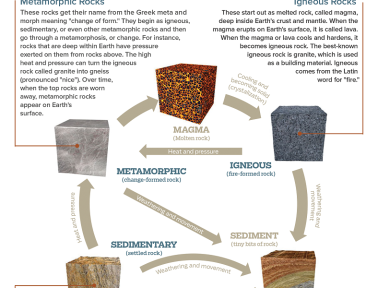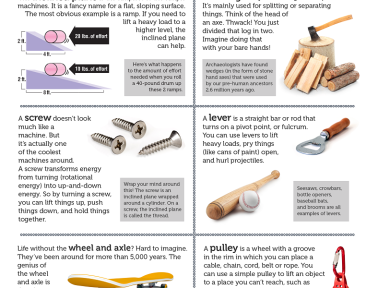You might be surprised how basic it is to sustain language advancement … and also established the stage for much more benefits in the future!
Years ago, researchers Betty Hart, PhD as well as Todd Risley, PhD of the College of Kansas, discovered some fantastic results from an extremely comprehensive research study of little ones (0-3), their caregivers, as well as their conversations. After 3 years of observing 42 families from throughout a different socio-economic swimming pool, and analyzing the greater than 1,300 hours of interactions they had actually taped, they uncovered a great deal about language, but also made some unexpected links along the way.
They were currently aware of one popular searching for: There’s a scholastic divide across the socio-economic landscape that reveals children from more affluent residences succeeding in schools and youngsters from poorer houses struggling. However the following thing they revealed was extra unusual. The link to academic success might not come straight from revenue, rather from something that is definitely complimentary. Words.
The scientists found that youngsters in upscale houses listened to more words each day than the kids from lower SES brackets. Youngsters from households on well-being were revealed to just over 600 words in a hr of interactions. Kids from working-class houses were subjected to over 1,200 words in that very same amount of time. Covering them all, nonetheless, were the youngsters from specialist course households, who heard over 2,100 words in an average hr. Throughout the first 3 years of life, that’s a distinction of numerous words.
Currently right here’s the very best component. Hart as well as Risley insisted that households from the reduced SES braces who chatted like the families in the higher SES braces had youngsters who did in college like those higher SES children. It was the build-up of conversations that enhanced their understanding abilities, not the accumulation of wealth.
Considering the seriousness of the educational variation along socio-economic lines, it’s nearly surprising to assume that disparity could be minimized or even erased with something so easy, so available as WORDS.
WORDS: The number of? What Kind?
According to Hart as well as Risley, the optimal input of words in a young child’s day total amounts around 30,000 words. That looks like a whole lot. However it can come from a lot of sources. Reading and also talking about publications at tale time can conveniently produce 2,000 words. Chatting throughout diaper modifications and also meal times could raise that overall exponentially. Yet there is one resource of spoken input that was NOT shown to contribute to those total amounts: TELEVISION. While there are lots of words originating from the display, those words didn’t carry the very same advantages as words shared in a discussion with a grown-up (or even older youngsters) with whom the child shared a connection.
As Dr. Khanh-Van Le-Bucklin, M.D., a scholastic doctor with the University of California, Irvine has been priced estimate, ” I inform parents that the best plaything they can give their kids is themselves. No educational toy, TV program or video can favorably impact a child’s development like time spent with an engaged and also chatting adult.”
While examining hours and also hours of discussions, Hart and also Risley likewise looked at the types of discussions that were taking place. They found that the caretakers that wound up tallying reduced varieties of words per day were frequently speaking with the youngster in regulations. “Place on your layer.” “Get in the car.” “Go eat your supper.” Yet those that struck the ideal 30,000 word mark were those that engaged the kid in discussion as well as narrated their experiences through the day with descriptive language.
Consider this option to the low-yield regulation, “Place on your coat.“:
“It’s time to go see Grammy! Yet first we need to get your coat on. It’s so cool and windy today. Can you see those trees? See their branches moving? It’s so windy! Brrr! Allow’s obtain your layer! Let’s put one arm in … there’s your hand! Currently the various other arm… there’s your hand! Currently we require to ziiiiiiip it up! Do you want your hood on or off? On? There you go! You looks so cozy now! I ought to put on my jacket too…”
A 4 word directive becomes an 80+ word experience! It’s simple to see how quickly the disparity between directive caretakers and conversational caretakers can expand. According to the research it can be the distinction of 8 million words a year!
Can you think of if we were speaking about calories? If we were going over the difference in between kids who obtained the required 30,000 “calories” a day vs the youngsters were just getting 5,000? In that context we can see that there are children who are absolutely starving for words!
I firmly believe that moms and dads desire what’s best for their kids. I don’t believe there’s anyone available that is purposefully holding back words in the hopes of stunting their kid’s advancement. There are numerous things that may lead a moms and dad to speak basically to their youngsters. Work schedules, stress and anxiety, illness, as well as childcare choices can be large obstacles, as well as we do not constantly have complete control over them.
However I additionally think there are less complex roadblocks, like recognition, that we can attempt to remove. Today.We can begin today by recognizing the diversions that are swiping precious discussions (TV, phones, rushed routines) while at the very same time coming to be much more aware of the several chances for conversations in the day-to-day moments of our lives.
Right here are 5 Ways to Construct Early Language Abilities:
- Recognize Cues … as well as Respond!– Even infants and preverbal young children participate in the give-and-take “dance” of conversation. If you do not believe so, take a look at this video clip or this set. Find out to identify when youngsters are making efforts to interact. Making eye-contact, cooing, even hand touching can be attempts to involve you. React by speaking or by mirroring the youngster’s efforts. The simple act of taking turns cuing and responding lays the initial structure for discussion.
- End up being a Sportscaster– Provide a spoken play-by-play to explain what’s taking place in your youngster’s daily experiences. Talk through the actions as you clothe your child, prepare a bathroom, or dish out dinner. This is excellent for providing your youngster purposeful words in their natural context (as you see in this video, words “water” was found out through interactions in– surprise!– the bathroom and kitchen). As an added reward, this technique also maintains kids engaged during periods where they may or else become impatient!
- Be Present, Be Patient– Probably the most significant risk to kids obtaining adequate words daily is the busyness and also interruption that engulf us. On the flip side, the most effective method to bring words into the lives of our children is to be really existing as well as aware of what they are taking note of. When we give them words in the moments that hold one of the most suggesting for them, the impact is effective. Yet we need to slow down, realize, and also make the effort to chat at a comfortable, all-natural rate.
- Keep in mind to Stop– With all this focus on revealing youngsters to enough words every day, it’s very easy to obtain captured up as well as overload children with words. However silent is necessary too. We have to give children a chance to add too– whether vocally or nonverbally. Without remembering to stop briefly, we’re just talking AT children, not WITH them, and also we sadly fizzle. (Read more about this technique from a remarkable blog post regarding the Perfect Pause from The Little Stories.)
- Gather Decrease In a Bucket– Keep in mind that kids collect their verbal abilities one word at once. It resembles adding drops of water to a bucket. Each one seems small and also irrelevant, yet as they gather over time, soon you locate they’re overruning! As we see from the study, simple distinctions on a day-to-day or even hourly basis may not look like much in the moment, however over the course of a childhood, it adds up to a difference of numerous words. And also with those words, a globe of opportunity opens up.
What do you do to make time for conversations with the youngsters you like as well as educate?










